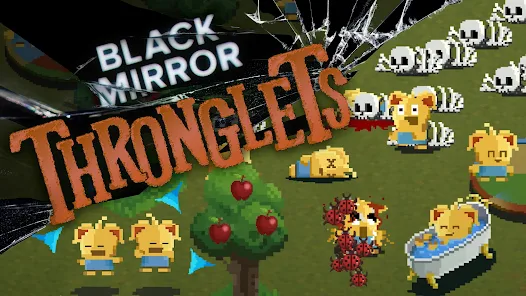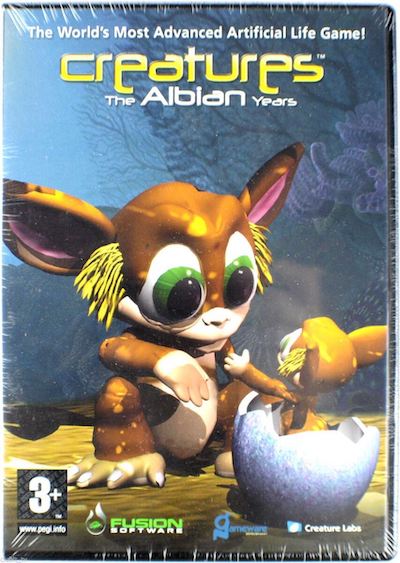I am working my way through the latest season of Black Mirror (S7) and watched the Plaything episode (E4) the other day.
Here’s a one paragraph summary via grok3:
In Black Mirror’s “Plaything,” set in the Bandersnatch universe and aired on April 10, 2025, Cameron Walker (Peter Capaldi and Lewis Gribben) faces murder charges in 2034 and recounts his 1990s past as a video game journalist. Invited by eccentric programmer Colin Ritman (Will Poulter) to review Tuckersoft’s Thronglets—a game featuring digital creatures without conflict—Cameron becomes obsessed, believing he can communicate with them after an LSD-fueled night. His fixation escalates as he upgrades his computer to enhance their interactions, leading to a violent act tied to the murder charge. Exploring AI, human connection, and digital ethics, the episode, written by Charlie Brooker and directed by David Slade, was praised for its unsettling tone and accompanied by a real-world Thronglets mobile game.
Thronglets mobile game? Yep.
These days you could probable vibe-code something like this with javascript.

Anyway, the episode is not bad.
I’m not sure about requiring LSD for communication or the creatures knowledge of PC hardware and requests for upgrades coming so soon. These leaps were jarring.
Still, a fun “what if” episode.
Probably my favourite part was how the the thronglets hack human brains via an audio broadcast. Are we hackable that way? Probably not in this specific manner, but we are hackable and superintelligent AI could (will?) hack us. Or just kill us.
Generally, it was really cool so see an alife simulation from the 1990s taken (somewhat) seriously as a scifi story.
It gave me strong vibes of Steve Grand’s Creatures video game series.

I think this was the main intent of the episode: what if “creatures”, the game, became sentient.
Here’s a grok3 summary of the game:
Creatures, a 1996 life simulation game developed by Creature Labs for PC and later ported to other platforms, lets players nurture and evolve virtual creatures called Norns in the fictional world of Albia. Players hatch, feed, teach, and breed these AI-driven beings, each with unique genetics, behaviors, and learning abilities, in a sandbox environment. The game emphasizes artificial life, with Norns capable of learning language, reproducing, and passing traits to offspring, while players manage their health, environment, and interactions with other species like Grendels and Ettins. Its innovative AI and open-ended gameplay, inspired by creator Steve Grand’s vision of digital life, made it a cult classic.
A quote from Steve Grand’s 2000 book “Creation: Life and How to Make It”:
After years of idle experimentation with the ideas to be described in this book, my first real opportunity to create artificial life came in 1992, under the cunning disguise of writing a computer game. This game was called Creatures, and it turned out to be more successful than I could ever have imagined. Roughly a million people across the world now look after the artificial organisms I created, and the global population of the creatures themselves even outnumbers that of many natural species.
To a lesser degree, this episode also gave me the vibes of Tamagotchi, of Lemmings, of Karl Sims evolved creatures and Will Wright’s Spore video game.